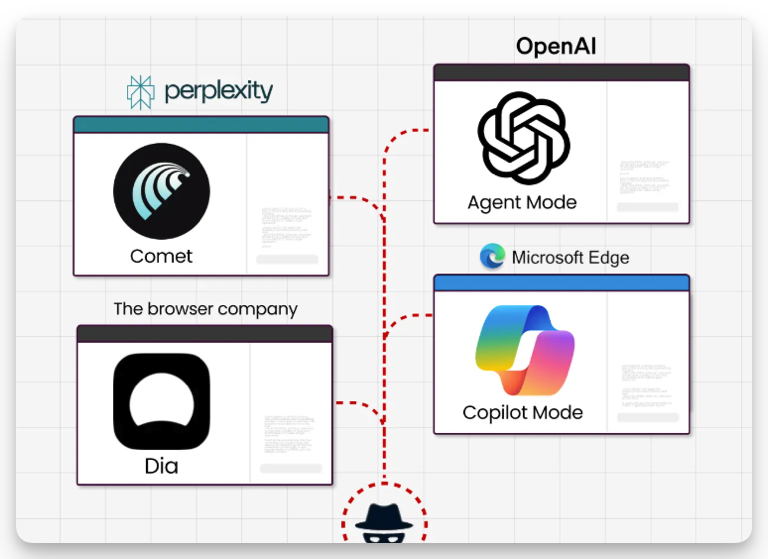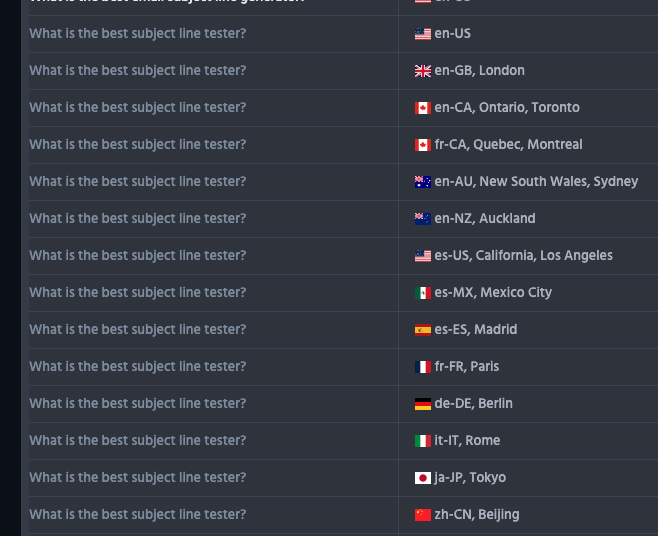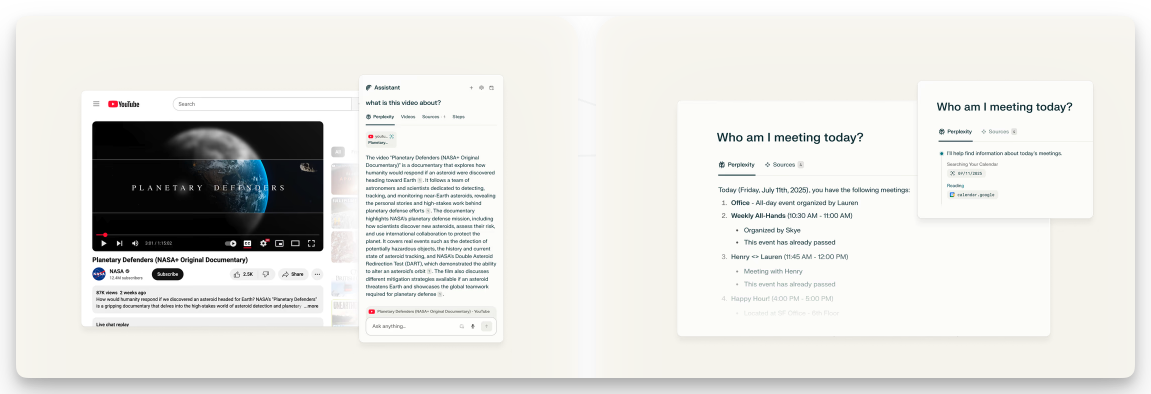Search Disrupted Newsletter (Issue 22)
AI browsers fail security tests, Gemini expands to smart homes, Reddit blocks Internet Archive, and Meta licenses Midjourney tech.
AI Browsers: When Your Shopping Assistant Becomes the Scammer
If everyday consumers can’t trust AI browsers and AI search to avoid falling for scams that a slightly concussed 12-year-old could see through, then the AI search world is in trouble.
Guard.io’s “Scamlexity” research tested AI browsers against real scams, and spoiler alert: the AIs not only failed to detect fraud, but they actively participated in it.
We’re talking about AI agents cheerfully entering credit card details on phishing sites and clicking “confirm purchase” on fake stores without breaking a digital sweat.
For search marketers, this security disaster fundamentally undermines the AI search ecosystem we’re all trying to optimize for. When AI agents can’t distinguish between legitimate commerce sites and scams, it creates a trust crisis that impacts every level of the funnel.
Your perfectly optimized product pages and streamlined checkout flows? They’re now working equally well for scammers whose AI-compromised agents are making autonomous purchases.
The bigger AI search impact: as these vulnerabilities become public, users will start disabling AI assistants entirely, further fragmenting the search landscape. We’ll see a split between “trusted” AI search (likely from major players with better security) and everything else. This means your optimization strategy needs to account for both AI-assisted and AI-skeptical user segments.
Link: Guard.io Scamlexity Research
Google’s Gemini Home Invasion (The Good Kind)
Google’s bringing Gemini to Google Home this October.
Which leads to some complicated feelings. I’d like to be excited but the first go-around of Home Voice Assistants never really seemed to get there.
So it’s with a lot of cautions optimism that I’m looking forward to this.
It’s a different world now.
Compared to then, there’s actually a lot more voice search happening every day now. Although it generally does not occur on smart home devices, but 90% on mobile and somewhat on desktop.
I’m admittedly a bit biased here as I’m a massive user of SuperWhisper on the Mac, which has been a huge game-changer in helping me deal with repetitive stress injuries in my hands and arms.
I think what we’re seeing from Google is the cost of running AI models coming down to the point where it makes sense for them to make them more readily accessible on home devices.
Which, hey, maybe that’s the start of a “new era” of AI-driven voice search, where the devices all work how we wanted them to when they launched, but now they’re actually good at it.
Link: Gemini Coming to Google Home
Reddit vs. Internet Archive: The Web’s Memory Gets Paywalled
It used to be simple. Google’s Googlebot would crawl your website, and sometime later, you’d show up in their search index.
Nowadays, it is much more complicated. All of the AI search services pull data from multiple different sources:
- traditional search engines
- social media
- their own crawlers
- licensed data
And then pick and choose what to build their models on top of.
Which brings us to Reddit and the Internet Archive. Many of the top AI services are licensing content from Reddit for training (knowledge gain). However, some have been making an end-run around Reddit by scraping data from the Internet Archive’s Wayback Machine, which archives Reddit.
Which Reddit obviously doesn’t like because they’re losing out on a potential revenue stream.
There are two takeaways here for search marketers:
- You should make sure that you’re getting your brand’s content out on Reddit.
- You should make sure that your site can be crawled by the Internet Archive’s Wayback Machine collection bots, as they’re also a source of content for the AI search services.
Which is why we created the AI Search Console (within your Knowatoa account), which helps track which of these services can reach your site, so you can have some assurance that you’re not inadvertently harming your own AI search rankings.
Link: Reddit Blocks Internet Archive
Knowatoa Updates: API Launch and Locale Customizations
While we haven’t sent the newsletter out in a bit, we were taking the time to ship some new and much-requested features:
Both direct (JSON) API access and Looker Studio integrations are now available, as is the ability to customize the Country, Region, City, and Language of each question you’re tracking in Knowatoa.
Perplexity’s Publisher Program
While I applaud the effort, it’s hard to make the math work for Perplexity’s new revenue-sharing program for publishers.
The program promises revenue sharing when your content appears in AI responses. Still, there is a loss of direct traffic, email captures, retargeting opportunities, and customer data in exchange for fractional revenue shares.
If you’re like me, though, you’re not really a “publisher”. You’re trying to improve search results for your own brand, your clients’, your company’s, and so on, and reduce the need for driving eyeballs to a site for content.
To me, this suggests that we’re still trying to determine the optimal balance between attribution, revenue, data sourcing, and content creation.
Link: Perplexity’s Publisher Payment Program
Grok Goes Open Source: Free AI with Expensive Strings
X just open-sourced Grok 2.5, and while developers are popping champagne, search marketers should be asking more complex questions about what this means for the AI search landscape.
The open-sourcing of Grok (and all the other AI models) creates a proliferation problem for search optimization. Instead of optimizing for a handful of known search systems, we must tackle a fractured search environment that includes not only competing search engines but also individual apps that have embedded open-source models within them.
The competitive advantage shifts to those who can influence across all the AI models, from those trying to pick winners.
For AI search optimization, prepare for a world where every central platform runs its own version of Grok. Your content needs to be so fundamentally well-structured that it performs regardless of which flavor of AI is consuming it. Think of it as mobile-first design, but for AI consumption: build for the lowest common denominator while maintaining quality for advanced systems.
Link: Grok 2.5 Goes Open Source
Thanks this week
Thanks to you (sincerely) for reading this, I’d love to know if you find this helpful? What would you like to hear more of?

p.s. It would really help me out if you could Follow me on LinkedIn






